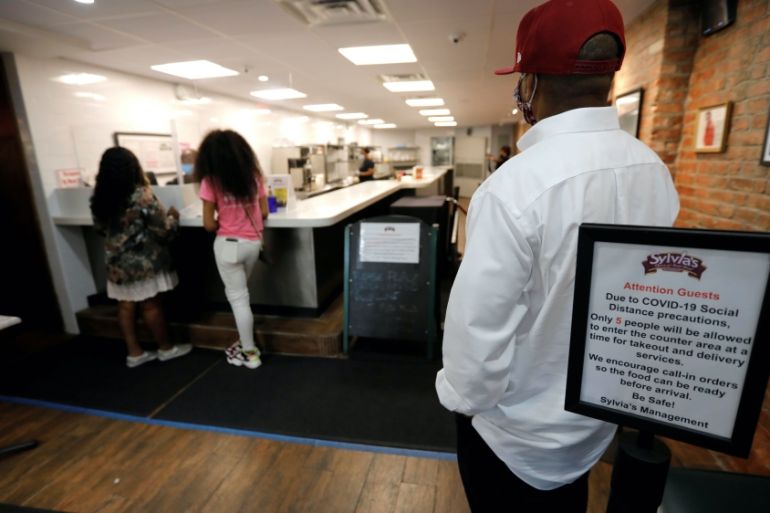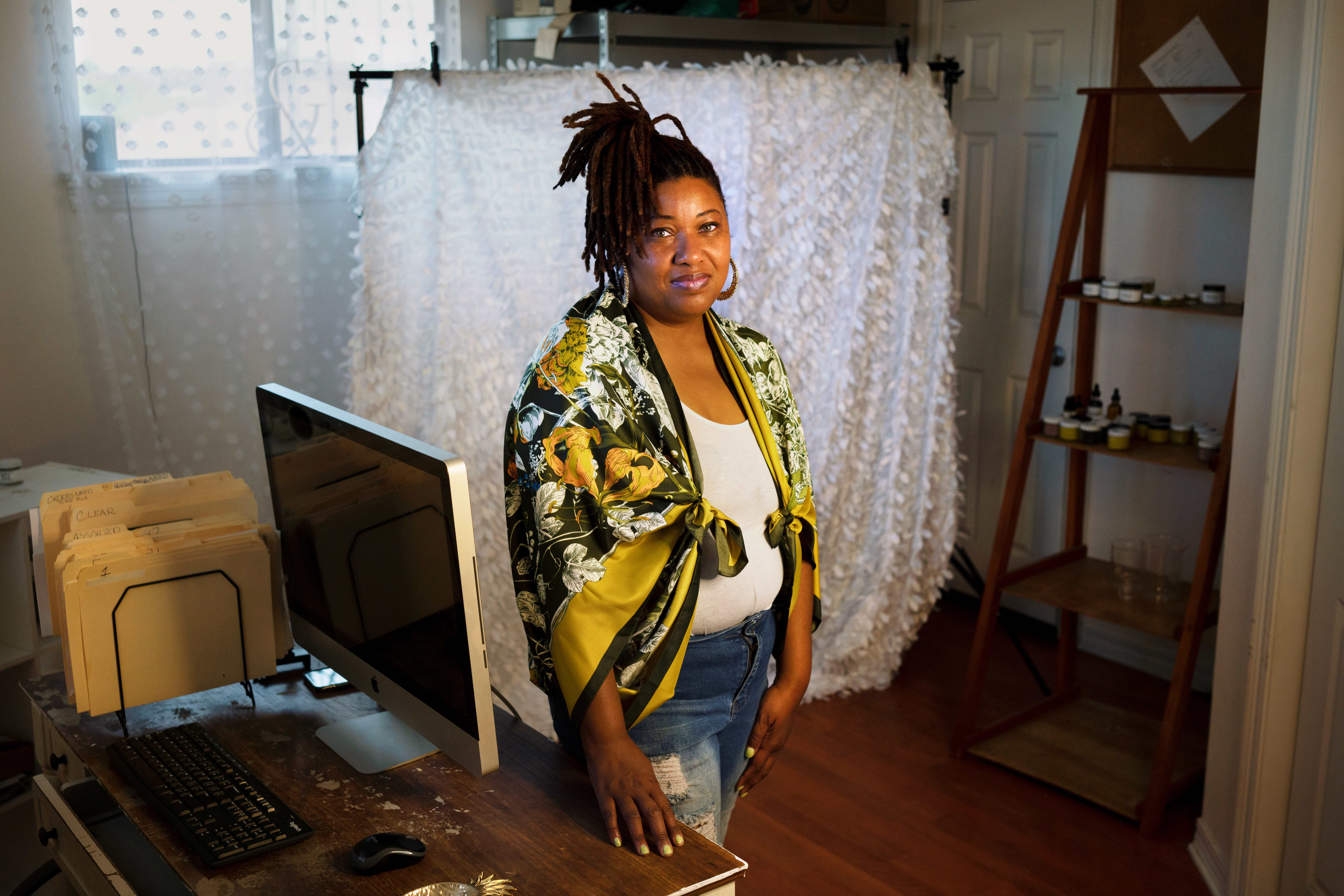US: Why were Black-owned businesses the hardest hit by pandemic?
Researchers at the New York Fed identify three key drivers for racial disparities in COVID-19 business closures.

The coronavirus pandemic has disproportionately hit communities of colour in the United States with research showing that the number of active African American business owners fell 41 percent from February through April, compared with a 17 percent drop in active white business owners.
The exact drivers of that stunning inequity are the subject of a brief released earlier this week by economists at the New York Federal Reserve.
Keep reading
list of 4 itemsMexico’s teachers seek relief from pandemic-era spike in school robberies
‘A bad chapter’: Tracing the origins of Ecuador’s rise in gang violence
Why is the US economy so resilient?
The New York Fed economists identified three main areas that left African American businesses more vulnerable to closure than their white counterparts, including higher rates of COVID-19 infections in areas where Black-owned businesses are more likely to be located, racial disparities in access to federal relief funds, and pre-pandemic funding gaps and weaker banking relationships that made “even the healthiest Black firms” financially disadvantaged when lockdowns swept the nation in March.
Geographically concentrated in COVID-19 hotspots

The New York Fed’s research illustrates the close relationship between the health and economic effects of the coronavirus pandemic.
“Data from counties nationwide show Black-owned firms are more likely to be located in COVID-19 hotspots, whereas white-owned firms are less likely to be in the most heavily affected areas,” the Fed brief’s authors, Claire Kramer Mills, Assistant Vice President and Jessica Battisto, Senior Analyst, write.

Unequal access to federal relief funds also worked against African American-owned businesses.
The Fed researchers found that loans administered through the federal government’s Paycheck Protection Program (PPP) designed to help small businesses stay afloat during lockdowns reached only 20 percent of eligible firms in states with the highest concentration of Black-owned firms. In counties with the highest density of black-owned businesses, coverage rates were lower than 20 percent on average.
Prior banking relationships were also a strong indicator of which firms received loans through the PPP, researchers from the New York Fed and University of Chicago found.
Fewer than a quarter of Black-owned employer firms with workers on payroll had a recent borrowing relationship with a bank, the New York Fed researchers found based on 2019 data.
For Black-owned nonemployer firms – a category that includes gig workers, startups that are planning to hire employees and mature businesses that rely on contract workers – fewer than one in 10 had a recent borrowing relationship with a bank.
“It is important to note these funding gaps are not due to differential rates in Black firms applying for financing,” the researchers write. “In fact, recent survey evidence indicates that Black-owned firms – both employer and nonemployer – apply for financing at equal or higher rates than white-owned firms but are denied at higher rates.”
Pre-pandemic financial health of firms also set the stage for stunning racial disparities in business closures.

Disadvantaged cash positions and pre-existing loan and credit gaps left Black-owned businesses with little cushion to deal with months of lockdowns meant to stem the spread of COVID-19.
Only 42 percent of Black-owned employer businesses were operating at a profit, had a high credit score and were using retained business earnings to fund their operations pre-pandemic, compared with 73 percent of white employers.
Another consideration raised in the brief: African American businesses owners were less likely to apply for a financial lifeline “because they believe they would be turned down”.
To help redress these disparities, the New York Fed economists conclude that the next round of COVID-19 relief funds would have the greatest impact if they are targeted at the hardest-hit areas and communities lacking critical infrastructure, like hospitals and banks, to deal with the pandemic.
The brief also says long-festering structural problems – like a paucity of banks and unequal access to credit in communities of colour, take on a “heightened significance” when financial institutions are relied upon to administer federal, taxpayer-funded virus relief programmes.